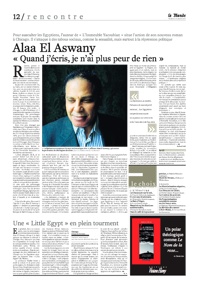I am going to resume blogging (and tell you what I was doing last week) shortly, but until I get my DSL back I am back to dial-up, which means much more limited usage of the various services I use to get online and prioritizing of work-related stuff and getting the site fixed. Everything takes five times longer on dial-up.
Of course, just as this happens I am informed that The Arabist has been nominated for a Best of the Blogs – English award. Thank you to whoever nominated me, it’s really quite something to be running against wonderful major blogs such as TPM Muckraker, The Consumerist or MAKE ZINE. I have been running this blog for nearly five years now, and it’s been a great experiment. Contributors have come and gone, as has my ability to keep posting regularly despite some good political and professional reasons to stop altogether. Most recently, a change of jobs meant I had to negotiate to keep it running, and the price to pay was taking my name off ( for good reasons.) In the meantime the creation of the sub-blogs 3Arabawy and Hatshepsut has added variety to the content we offer, and Hossam and Eman (who are behind those efforts) are part and parcel of what got the site nominated.
So if you want to give a little something back, head over to the Best of the Blogs site and vote for us — there are 16 days left to do so. I’m not hoping for much against that kind of competition, but let’s show them a fight.

